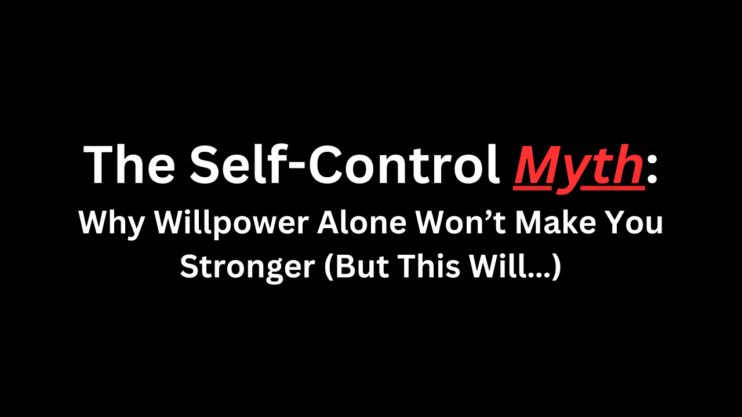Self-control is often seen as an innate trait—something you’re either born with or not. But modern research challenges that idea, showing that self-control is much like a muscle: it can be trained, strengthened, and improved over time. For martial artists, this is great news because we already understand the power of repetition, discipline, and consistency.
The Marshmallow Test: What We Got Wrong and Right
Many of us have heard of the famous Marshmallow Test—an experiment in which young children were given a choice: eat one marshmallow immediately or wait and receive two marshmallows later. The original study suggested that children who delayed gratification grew up to have better life outcomes, including higher academic achievement and career success.
But later research found a more complex truth: self-control is influenced by more than just personal willpower. A child’s ability to wait was also shaped by factors like trust in the environment, socioeconomic background, and life experiences. In other words, it wasn’t just about willpower—it was about what they had learned from life.
This brings us to an important takeaway: Self-control isn’t just an innate ability—it’s a skill that can be developed through training and experience.
How We Build Self-Control in Martial Arts
As martial artists, we engage in self-control training every time we step onto the mat. Whether we realize it or not, the process of refining our technique, pushing through discomfort, and staying disciplined in our practice all strengthen our ability to delay gratification and stay committed to long-term goals.
Here’s how self-control plays out in training and in life:
✅ Pushing through exhaustion – Those last few reps in training? The final round when you feel drained? Every time you keep going, you’re building mental endurance.
✅ Choosing discipline over distraction – Skipping class because you “don’t feel like it” is easy, but showing up anyway strengthens your resilience.
✅ Sticking with the basics – It’s tempting to rush ahead to flashy techniques, but mastering fundamentals leads to real skill development.
✅ Applying it off the mat – Self-control extends beyond training: it’s in your diet, your work ethic, your relationships, and how you handle stress.
Self-Control is Like a Muscle—You Can Strengthen It
Research supports the idea that self-control functions like a muscle—it can become fatigued if overused, but it can also be trained and strengthened through consistent effort (Baumeister et al., 2007). Engaging in small, repeated acts of discipline (such as maintaining good posture, regulating speech, or resisting small temptations) increases self-control over time.
In another study, researchers found that children who demonstrated self-control not only had better academic outcomes but also experienced lower levels of stress and were better able to regulate their emotions in adulthood (Mischel et al., 2011).
Practical Ways to Strengthen Your Self-Control
Want to train your self-control just like you train your body? Start with these simple steps:
✔ Commit to a routine – Set small, achievable habits and stick to them, whether it’s attending class regularly, eating healthy meals, or completing tasks before rewarding yourself.
✔ Resist small temptations – Each time you choose to delay gratification (whether skipping a sugary snack or staying focused on work), you reinforce your discipline.
✔ Focus on the long game – Progress in martial arts and life isn’t instant. Keep your eyes on the bigger goal rather than immediate comfort.
✔ Surround yourself with a strong community – Training with others who share your values strengthens your commitment and accountability.
Final Thoughts
Martial arts isn’t just about physical technique—it’s about developing mental strength and self-discipline that impact every part of life. The more we train, the more we cultivate patience, focus, and resilience.
Self-control isn’t something you’re born with—it’s something you build. And every time you choose discipline over ease, you’re reinforcing the warrior mindset that will carry you through every challenge, both on and off the mats.
Sources:
- Baumeister, R. F., Vohs, K. D., & Tice, D. M. (2007). The strength model of self-control. PMC2855143
- Mischel, W., Ebbesen, E. B., & Zeiss, A. R. (2011). Predictive power of delayed gratification: A closer look. PMC10152116




